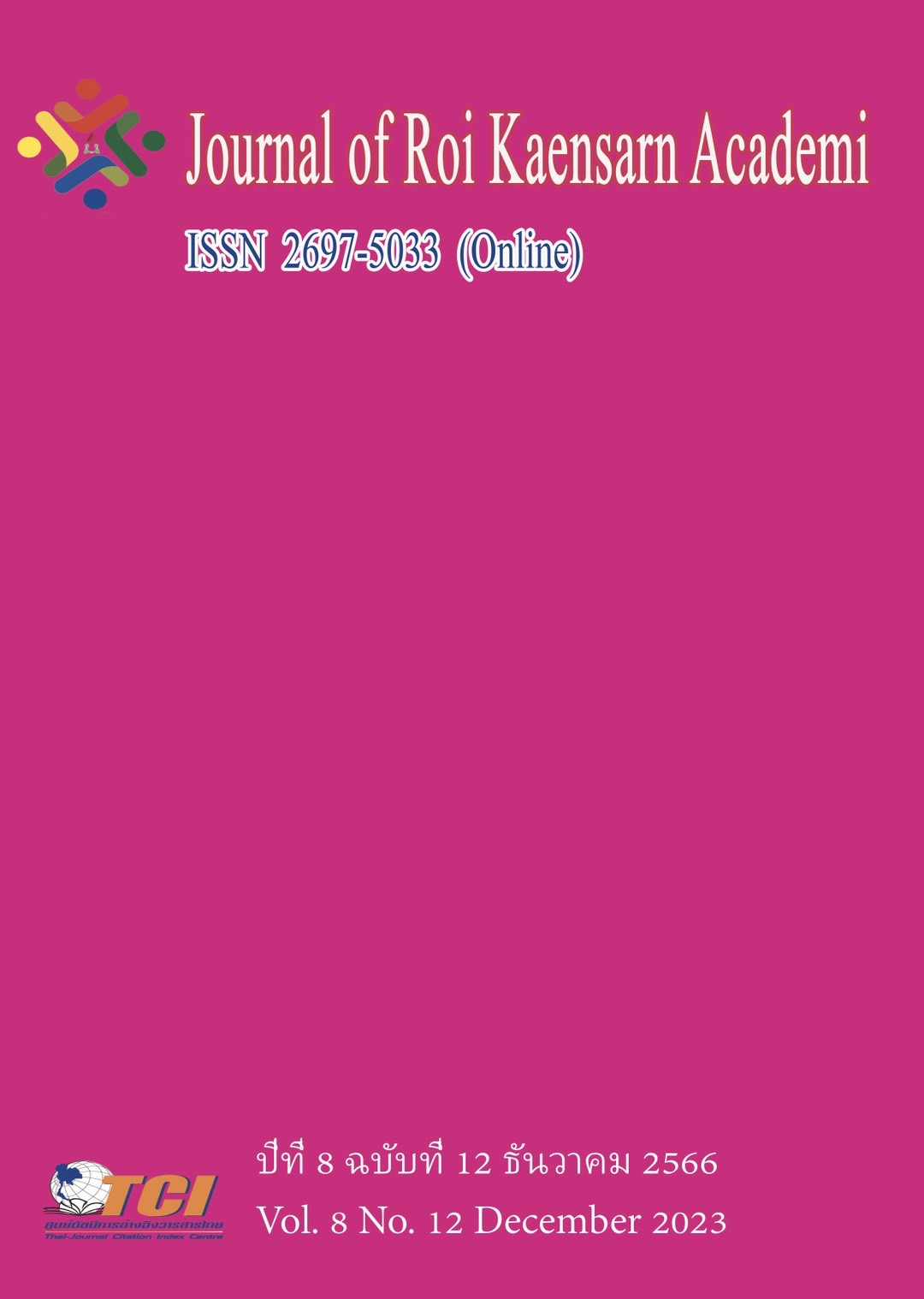เกมทางการศึกษา : ความสนุกสนานบนพื้นฐานทางวิชาการ
Main Article Content
บทคัดย่อ
เกมการศึกษาได้กลายเป็นแนวทางจัดการเรียนรู้ที่ได้รับความนิยมและมีประสิทธิภาพในการผสมผสาน การเรียนรู้เข้ากับความสนุกสนานในสภาพแวดล้อมทางวิชาการ เกมเหล่านี้ออกแบบมาเพื่อให้ผู้เรียนมีส่วนร่วมกับประสบการณ์การเรียนรู้ที่กระตือรือร้น สร้างสภาพแวดล้อมที่เอื้ออำนวยและโต้ตอบได้ บทความนี้มีวัตถุประสงค์เพื่อสำรวจแนวคิดของเกมการศึกษาว่าเป็นเรื่องสนุกเชิงวิชาการ โดยเน้นถึงประโยชน์และผลกระทบที่เกิดขึ้นต่อการมีส่วนร่วมของผู้เรียนและผลการเรียนรู้ที่คาดหวัง ด้วยการผสมผสานองค์ประกอบของเกม เช่น ความท้าทาย รางวัล และการแข่งขัน เกมการศึกษาจึงเป็นแพลตฟอร์มที่ไม่เหมือนใครสำหรับผู้เรียนในการเพิ่มพูนความรู้ ทักษะ และความสามารถในการคิดเชิงวิพากษ์ พวกเขาให้โอกาสในการเรียนรู้จากประสบการณ์ การแก้ปัญหา การทำงานร่วมกัน และความคิดสร้างสรรค์ นอกจากนี้ เกมการศึกษาส่งเสริมแรงจูงใจและทัศนคติที่ดีต่อการเรียนรู้ ทำให้กระบวนการจัดการเรียนรู้สนุกสนานและมีส่วนร่วมมากขึ้น บทความนี้ยังกล่าวถึงข้อควรพิจารณาในการออกแบบและนำเกมการศึกษาไปใช้อย่างมีประสิทธิภาพ รวมถึงการปรับให้สอดคล้องกับวัตถุประสงค์ของหลักสูตร การบูรณาการกลยุทธ์การประเมิน และการใช้เทคโนโลยีและทรัพยากรที่เหมาะสม ท้ายที่สุดแล้ว การผนวกรวมความสนุกเชิงวิชาการผ่านเกมการศึกษาถือเป็นศักยภาพที่ดีในการเปลี่ยนสภาพแวดล้อมการเรียนรู้แบบดั้งเดิม ให้เป็นประสบการณ์การเรียนรู้แบบพลวัตและมีความสุข ที่ส่งเสริมทั้งผลสัมฤทธิ์ทางการเรียนและความเพลิดเพลินของผู้เรียน
Article Details
เอกสารอ้างอิง
สมาคมเครือข่ายการพัฒนาวิชาชีพอาจารย์และองค์กรระดับอุดมศึกษาแห่งประเทศไทย (2566). Game-Based Learning การเรียนรู้โดยใช้เกมเป็นฐาน. ออนไลน์. สืบค้นเมื่อ 11 กรกฎาคม 2566.แหล่งที่มา: https://active-learning.thailandpod.org/learning-activities/game-based-learning
Amory, A. (2006). Game object model version II: a theoretical framework for educational game development. Educational Technology Research and Development. 55 (1), 51–77. From: https://doi.org/10.1007/s11423-006-9001-x
Annetta, L. A. (2010). The “I’s” Have It: A Framework for Serious Educational Game Design. Review of General Psychology. 14(2), 105–113. From: https://doi.org/ 10.1037/ a0018985
Harpstead, E., MacLellan, C. J., Aleven, V., & Myers, B. A. (2014). Using extracted features to inform alignment-driven design ideas in an educational game. Proceedings of the SIGCHI Conference on Human Factors in Computing Systems. From: https://doi.org/ 10.1145/2556288.2557393
Hooshyar, D., Malva, L., Yang, Y., Pedaste, M., Wang, M., & Lim, H. (2021). An adaptive educational computer game: Effects on students’ knowledge and learning attitude in computational thinking. Computers in Human Behavior, 114, 106575. From: https://doi.org/10.1016/j.chb.2020.106575
Kinzie, M. B., & Joseph, D. R. D. (2008). Gender differences in game activity preferences of middle school children: implications for educational game design. Educational Technology Research and Development, 56(5–6), 643–663. From: https://doi.org/10.1007/s11423-007-9076-z
McLaren, B., Farzan, R., Adams, D., Mayer, R., & Forlizzi, J. (2017). Uncovering Gender and Problem Difficulty Effects in Learning with an Educational Game. Artificial Intelligence in Education, 540–543. From: https://doi.org/10.1007/978-3-319-61425-0_59
Moreno-Ger, P., Burgos, D., Martínez-Ortiz, I., Sierra, J. L., & Fernández-Manjón, B. (2008). Educational game design for online education. Computers in Human Behavior, 24(6), 2530–2540. From: https://doi.org/10.1016/j.chb.2008.03.012
O’Rourke, E., Haimovitz, K., Ballweber, C., Dweck, C., & Popović, Z. (2014). Brain points. Proceedings of the SIGCHI Conference on Human Factors in Computing Systems. From: https://doi.org/10.1145/2556288.2557157
Shin, H., Kim, B., & Gweon, G. (2020). Guessing or Solving? Extended Abstracts of the 2020 CHI Conference on Human Factors in Computing Systems. https://doi.org/10. 1145/3334480.3383005
Strickland, H. P., & Kaylor, S. K. (2016). Bringing your a-game: Educational gaming for student success. Nurse Education Today, 40, 101–103. From: https://doi.org/10.1016/ j.nedt.2016.02.014
Tlili, A., Essalmi, F., & Jemni, M. (2015). A Mobile Educational Game for Teaching Computer Architecture. 2015 IEEE 15th International Conference on Advanced Learning Technologies. From: https://doi.org/10.1109/icalt.2015.133
Waree, C. (2019). A Development of Instructional Games for Education Students. Smart Innovation, Systems and Technologies, 117–126. From: https://doi.org/10.1007/978-981-13-8260-4_11

